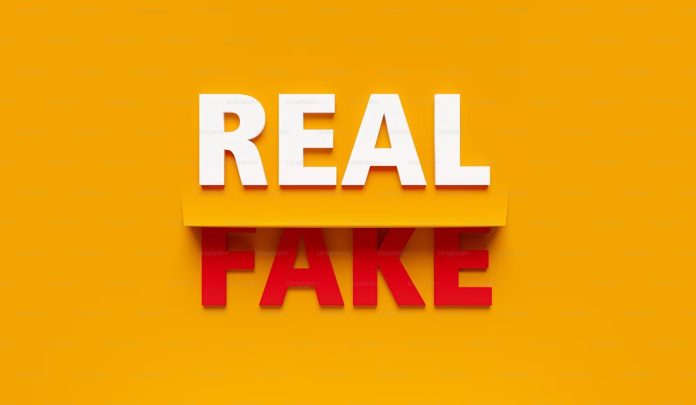Fake competitions and prize scams continue to circulate because excitement can outrun caution when an unexpected win appears.
Scammers imitate brands, copy visual styles, and push rushed actions that separate people from money or personal information. Since genuine giveaways do exist, it is easy to confuse a real promotion with a fraudulent one during a busy moment.
This guide follows the same general flow as widely shared safety advice while keeping the language original and practical. The aim is to help you recognize the patterns, slow the process, and protect details before anything leaves your hands.
Table of Contents
Understanding Fake Prize Offers
A fake prize or competition scam is any contact that claims you won something valuable and then nudges you to pay, share sensitive data, or install software before receiving the reward.
The scam usually starts with an unexpected message by email, text, social media, or a pop-up that looks official at first glance. The link points to a page that copies logos, colors, and tone while using a web address that is close to the real one but not an exact match.
You are asked for personal details and sometimes a small fee for shipping or verification, which is framed as a normal procedure. The outcome is either a one-off charge that cannot be recovered or an ongoing subscription that renews quietly until it is cancelled with difficulty.
Not all online competitions are scams. Many operate under clear rules, follow licensing requirements, and build a track record you can check. This new brand, Best Competitions, is a useful example of how a reputable operator might present offers. It keeps entry steps simple, focuses on mystery box draws, and sets expectations upfront.
Users can enter for a modest outlay and stand a chance to win items across tech, fashion, and product hampers, with occasional cash prizes. Many mystery box competition formats are designed so that even if you miss the top prize, you still receive a smaller item.
However, this isn’t always the case, so it’s worth checking the terms to confirm what’s guaranteed. The signal to trust is transparency rather than hype, so look for published terms, recent winners, and sensible spending controls before you press enter.
First Steps if You Think You Have Been Targeted by a Scam
If a prize message arrives, pause before clicking anything and take simple steps that give you control. Close the message or tab, then open a new browser window and go directly to the brand website using your own search, rather than any link provided.
Check whether the promotion exists and compare dates, terms, and the exact site address used for entries. If the approach came by phone, end the call and use the official number on the brand site to confirm the claim.
Do not provide card details, passwords, identity documents, or two-factor codes until you are satisfied that the offer is genuine. Treat the first contact as unverified, and only move forward after your checks line up.
Signs that Strongly Suggest a Scam
You need to be wary of red flags because scammers combine small cues to push rushed decisions and entries into fake competitions, often mimicking authority, promising effortless rewards, and using urgency to override careful checks.
Watch for messages that promise easy cash or guaranteed prizes that sound too good to be true, or that arrive out of the blue claiming you are owed money, a prize, or an inheritance.
Be cautious if you are told to pay taxes, fees, or shipping upfront to release winnings, especially if you never entered anything. Treat with suspicion any claim that you are the sole winner when the same notice was clearly blasted to many people.
Official-looking letters that ask for an advance payment to unlock a prize or refund are a major red flag, since legitimate organizations do not require upfront fees to release winnings or rebates. If several of these warning signs appear together, pause and verify the sender and offer before sharing any information or paying anything.
A Practical Checklist Before You Act
A checklist helps you pause, follow the same steps each time, and cut through the noise. It keeps decisions consistent under pressure and reduces the chance of missing small warning signs, while also leaving a record of what you checked if you need to report a scam later.
Start by verifying with the company using contact details on its official website or verified social pages, not the ones in the message you received. Treat any request for payment or personal information to release a prize, cover shipping, or pay fees as a scam, because legitimate promotions do not charge you to claim.
Next, check whether your email address appears in known data breaches using a reputable breach-checking service, as this can explain unexpected messages. Investigate the sender’s full email address and do a quick search to see if it has been reported for scams.
Finally, research the offer independently by opening a new tab and searching for the brand or promotion yourself instead of clicking the links you were sent.
What Real Giveaways Usually Include
Legitimate promotions are built to withstand scrutiny, with free entry and winners chosen by chance or clear skill criteria, never by payment to claim. Terms are easy to find, outlining eligibility, prize values, timing, and winner selection.
Entry forms ask only for basic contact details, not sensitive data. Announcements can be checked on official websites or long-established social pages, and delivery runs through recognized checkout flows on trusted domains.
Real organizers will not request full card details or move conversations into private channels without a record.
What to do if You’ve Clicked or Shared Information Already
Act quickly if you engaged with a fake offer, as early action limits damage. Contact your bank or card provider to block the card and review transactions.
Change any reused passwords, switch to strong, unique passphrases in a password manager, and enable two-factor authentication. If you used a social login, review sessions, revoke suspicious apps, and warn contacts about unusual messages.
Keep screenshots of pages, messages, and receipts, since clear records help providers respond effectively.
Who to Notify and How to Share Information Safely
Reporting helps protect others and speeds up the removal of fake pages. Use reporting tools on social platforms and email services, adding screenshots with dates, addresses, and a short description.
Tell your bank about any charges with clear timestamps so staff can act quickly. Many countries have consumer protection or cyber safety groups that take online reports and issue public alerts.
Share a calm summary with relatives, colleagues, and friends so they know what to watch for, turning your experience into a quiet warning that may prevent another rushed click.
Conclusion
Prize scams use speed, pressure, and convincing visuals, so the defence is to slow down. Open a new tab, confirm through official sources, and never share details or pay via unsolicited links.
Treat surprise wins as unverified until checked. A few minutes of caution and quick reporting help protect everyone and keep genuine offers safe to enjoy.
INTERESTING POSTS
- How To Set Up The Ideal Gaming Room For E-Sport Competitions
- 5 Checklist For Choosing A VPN Service Provider
- Internet Safety Rules Checklist [MUST READ]
- How To Identify And Avoid Online Gaming Scams
- Surfshark Black Friday Deals 2025 – Bigger Discounts and More Security
- What Are Phishing Scams And How You Can Avoid Them?
About the Author:
Gina Lynch is a VPN expert and online privacy advocate who stands for the right to online freedom. She is highly knowledgeable in the field of cybersecurity, with years of experience in researching and writing about the topic. Gina is a strong advocate of digital privacy and strives to educate the public on the importance of keeping their data secure and private. She has become a trusted expert in the field and continues to share her knowledge and advice to help others protect their online identities.










